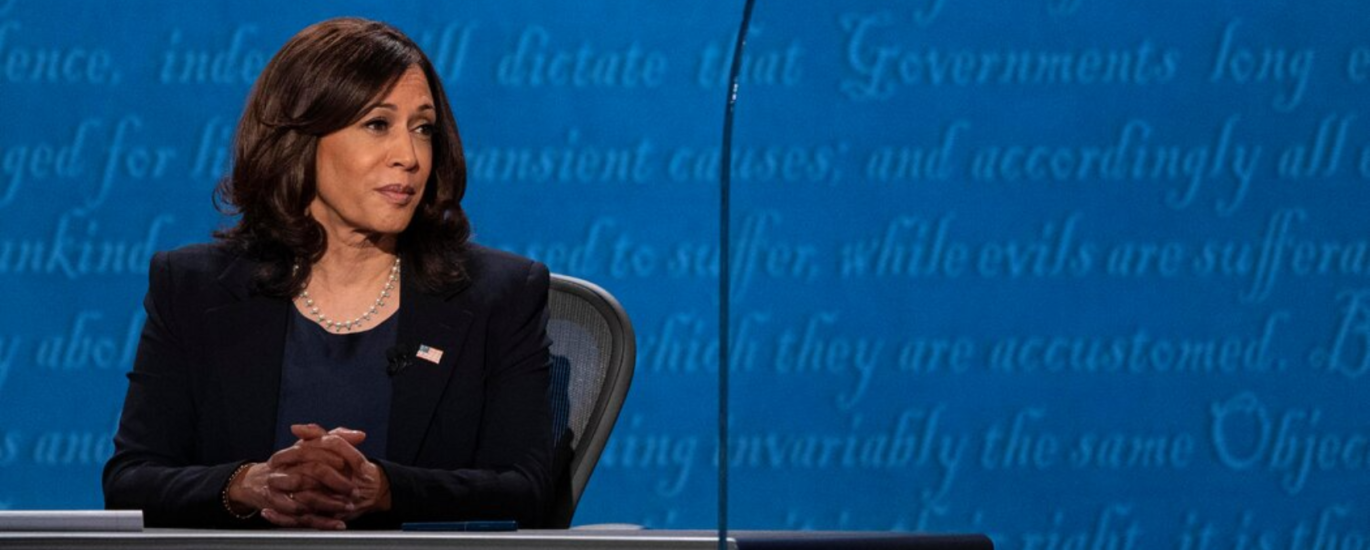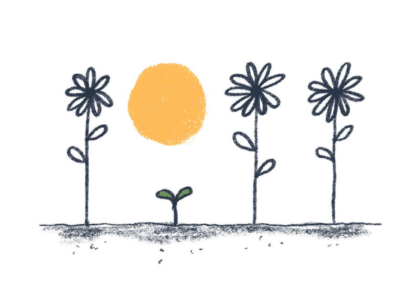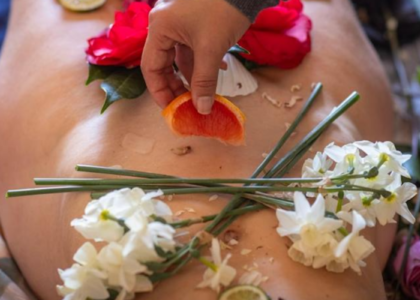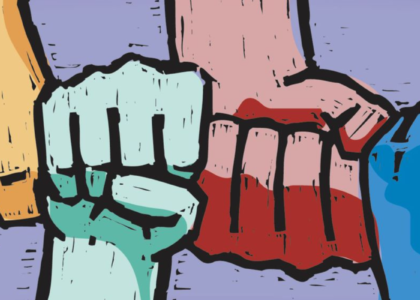“she breaks every single stereotype of how we viewed a leader in this country”
Amy is joined by Hitha Palepu to discuss her book, We’re Speaking: The Life Lesson of Kamala Harris, and learn more about Vice President Harris’s history, the breadth and depth of her experience, and the mold-breaking significance of her current presidential campaign.
Our Guest
Hitha Palepu

Hitha Palepu is a woman of multitudes: a feminist, a lifelong politics enthusiast, a daughter of immigrants, and a mother raising feminist sons. These multitudes spill into her multi-hyphenated career as an entrepreneur, investor, writer, and speaker. Hitha’s passion for the news and politics is captured in #5SmartReads, a Webby honored social series that shares five must-read articles every day to keep our community informed without being overwhelmed. Hitha’s longtime blog, Hitha on the Go, established her as an authority on lifestyle topics and gave way to her book and collaborations with leading brands such as Headspace, Google, and Northwestern Mutual. Her book How to Pack was published by Clarkson Potter in 2017, and her book We’re Speaking: The Life Lessons of Kamala Harris was published in 2021.
As CEO of Roshan Pharmaceuticals, Hitha oversees financing, partnerships, and strategy for the company. Hitha also puts her money where her values are through early-stage investing. A partner in Adama Ventures, which is her family office, she has invested in innovative companies primarily founded by women and focused on women. She is a sought-after speaker on politics and the news, investing, entrepreneurship, work-life juggle, and motherhood.
The Discussion
Amy Allebest: Sometimes I encounter people, usually men, who tell me that patriarchy doesn’t exist anymore. They claim that, if anything, women have more power than men in today’s world. One strategy that I recommend, if you’re ever in a conversation like this, is to ask them to simply look at the complete list of US presidents. It is pretty stunning to see the gallery of portraits consisting of 100% men and all of them white men, at that, with only one exception. The patriarchy in the US government is undeniable. But at the time of this recording in October, 2024, we are experiencing a historic moment. This past summer, current President Joe Biden dropped out of the presidential race and current Vice President Kamala Harris stepped forward to take on Donald Trump in the election. We are closer than ever before to electing the first female president of the United States of America, and the stakes are terrifyingly high. This episode is dedicated to presidential candidate Kamala Harris, and I’m so excited to get to know her better through the book We’re Speaking: The Life Lessons of Kamala Harris: How to Use Your Voice, Be Assertive, and Own Your Own Story by Hitha Palepu. I’m so excited to welcome the author of this book to Breaking Down Patriarchy. Welcome, Hitha!
Hitha Palepu: Thank you so much for having me!
AA: I’m really excited about this conversation. As usual, I’ll introduce you first professionally, I’ll read your professional bio, and then we’ll have you introduce yourself more personally afterwards.
Hitha Palepu is a woman of multitudes: a feminist, a lifelong politics enthusiast, a daughter of immigrants, and a mother raising feminist sons. These multitudes spill into her multi-hyphenated career as an entrepreneur, investor, writer, and speaker. Hitha’s passion for the news and politics is captured in #5SmartReads, a Webby honored social series that shares five must-read articles every day to keep our community informed without being overwhelmed. Hitha’s longtime blog, Hitha on the Go, established her as an authority on lifestyle topics and gave way to her book and collaborations with leading brands such as Headspace, Google, and Northwestern Mutual. Her book How to Pack was published by Clarkson Potter in 2017, and her book We’re Speaking: The Life Lessons of Kamala Harris, which we’re going to be discussing today, was published in 2021. As CEO of Roshan Pharmaceuticals, Hitha oversees financing, partnerships, and strategy for the company. Hitha also puts her money where her values are through early-stage investing. A partner in Adama Ventures, which is her family office, she has invested in innovative companies primarily founded by women and focused on women. She is a sought-after speaker on politics and the news, investing, entrepreneurship, work-life juggle, and motherhood.
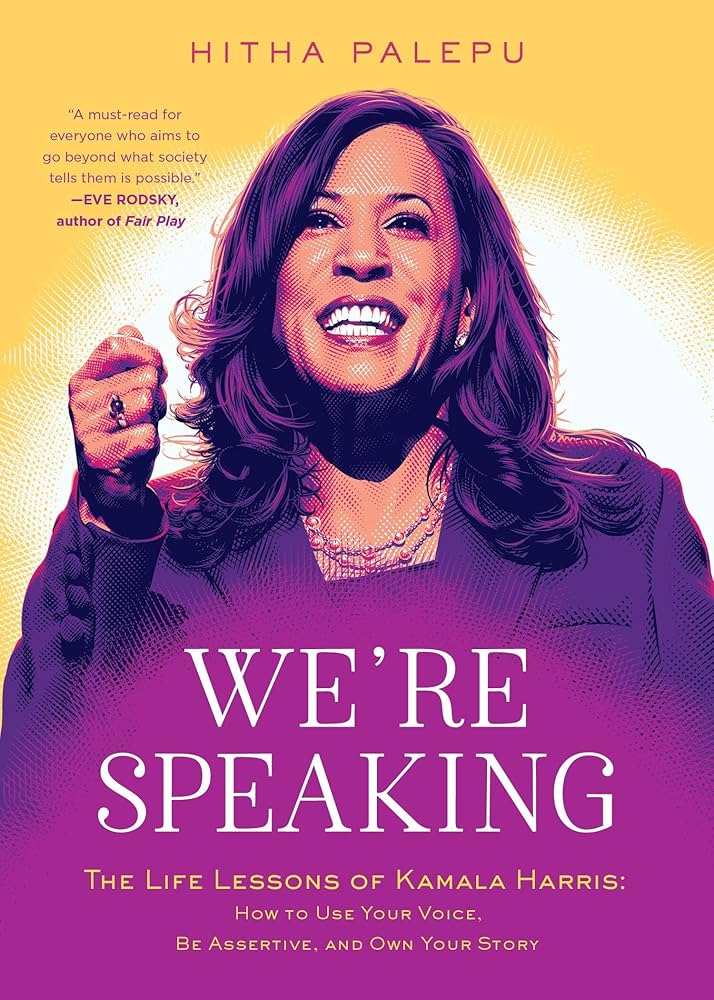
So, yes, you certainly are multi-hyphenated and multifaceted, and I just love reviewing that bio, Hitha, it’s very impressive. I’m wondering now, like I said before, if you can introduce yourself to our listeners more personally, where you’re from, what brought you to the work you do, how you feel about it. So, start with where you grew up and your family of origin.
HP: Yes. My parents immigrated to the United States in the ‘70s and had me in the early ‘80s. My dad spent his whole career working in biopharmaceuticals and research and development. At that time, and even still today to point, he hit a ceiling at a company where he could either be content with the role he had, or if he wanted to advance, he’d have to move. So we moved multiple times throughout my childhood. It was a bit of a nomadic upbringing, but also one that was rooted in such a deep family connection. And seeing how hard it is firsthand to advance and to grow one’s career from a very young age, and watching my mom really seize opportunities, both as an entrepreneur and working in the public sector and in the private sector, and really being the original multi-hyphenate that I have been trying to emulate ever since. I credit my parents for shaping me into the person I am today, both in modeling various qualities that I still to this day try to emulate, from discipline and hard work and leading with heart and love and humility, along with giving me exposure to biopharmaceutical development from a very young age and letting me work at a very young age.
I remember when I was eight years old, my mother started a travel agency specifically helping people who lived in the States book their tickets to go back to India. So we’d have to wait until the airlines opened in India to call in reservations, and my favorite thing to do every evening, from 7:30 till 9, when she finally kicked me out, was to answer the phones and take down folks’ details and help her build and run this business. I still think about those nights sitting on the floor of her home office as she worked one phone, me answering the other and writing down everyone’s details and answering it. “SSS Travels, this is Hitha speaking!”
AA: I love that!
HP: You think about the moments that actually shape you into who you are, and if you had asked me when I was a teenager, even in my twenties, “What shaped you?” I don’t think I would have remarked on that one. I think it’s after I became a mother that I think about these moments that my kids are watching me do what I do being the moments that I know shaped me, and I think about how it’s shaping them. That’s a bit of a nutshell, and I’ll close with the reason I call myself a multi-hyphenate and the reason I believe and embrace all my multitudes at once, is because of my mother. It’s because when I was a kid and someone would ask me what I wanted to be when I grew up, I always had the most insane answers, from “I want to be a pop star” to a jewelry designer to “I want to be Mr. T from the A-Team” because I really liked all his jewelry and his sweet van. But then my mother would always add in “and a doctor,” or, “and an engineer,” or “and a lawyer,” that typical secure career that many immigrants want for their children. She never said “or”, and that “and” was so important because at a very young age, she normalized that you could be multiple things at the same time and to never shrink yourself for somebody else’s comfort. I’m incredibly grateful for so many life lessons and so many experiences, and this incredible upbringing my parents have gifted me. I’m very lucky, and it’s a testament to being raised by two of the most incredible people I’ve ever met.
AA: Oh, that’s beautiful. Wow, that was just a wonderful introduction. Thank you so much. I’m wondering, of the multitudes that you’ve delved into and been interested in, and also made really interesting contributions to, how’d you get into politics? Because I know that’s something that you comment on, and you are participating in the public conversation about politics. How did that happen?
HP: It happened in high school. I was an intern for then congressman Mark Udall in Colorado, and he had convened a youth task force, so an opportunity to converse with– At the time, none of us were old enough to vote, but to converse with the youth, to understand what their concerns were, and to give us a peek at what congressional politics was all about. And that really sparked my flame for politics. And really, it’s not just about power, but it’s about the good you can do at scale, and that just seemed to be a lever. I wanted to learn how it worked and how to engage in the most useful way I could. So I did spend the next two summers interning for then congressman, now governor Jay Inslee from Washington state, working on and volunteering on the campaign, as well as working in both the district and the DC offices.
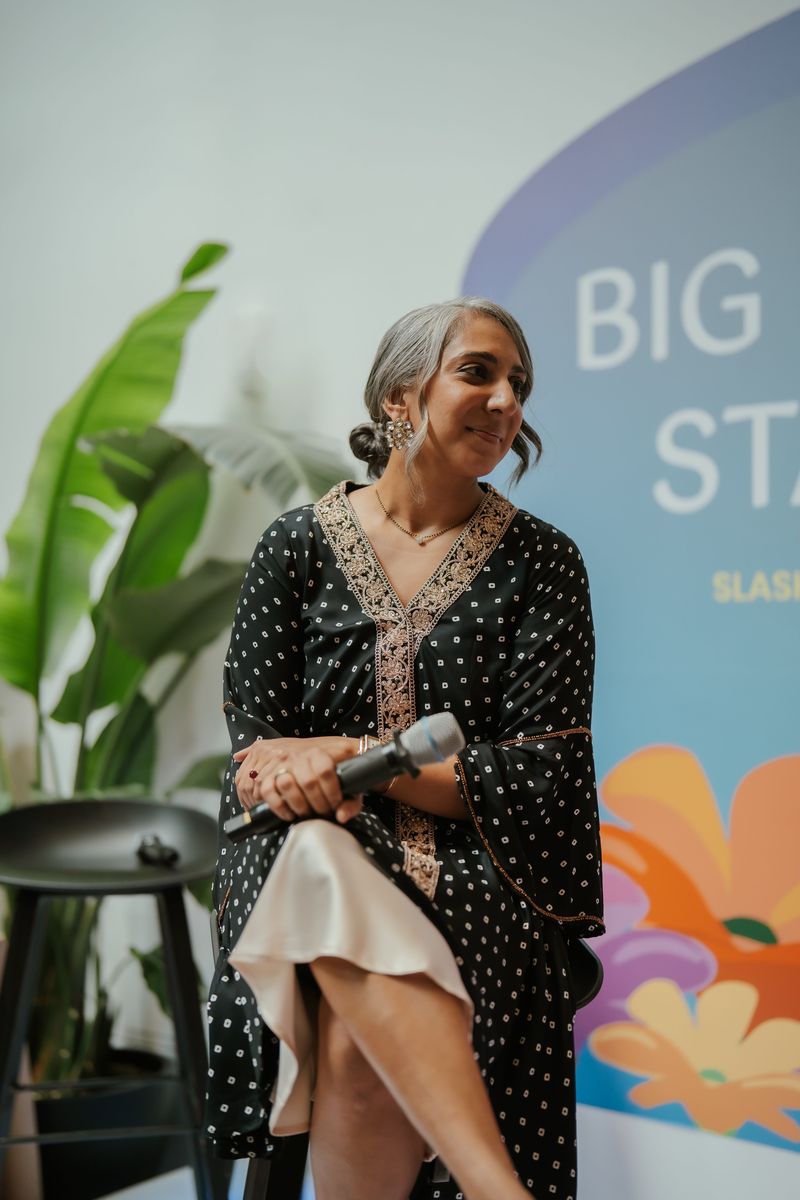
And I would have continued on had it not been for my dad gently reminding me that I was raised with a certain quality of life that working in politics would not be able to afford me, and reminded me that there are ways to be involved with politics while also having a career that could afford me the lifestyle I was very used to and did not want to give up. So I kept my fingers on the pulse, involved with local organizing as well as volunteering in congressional and presidential campaigns. I volunteered with both of Obama’s races as I had bandwidth to, and it was just a way of continuing to stay engaged and involved. Over time I was also asked to join different nonprofits that focused on issues I care deeply about. And when I think about the work as it pertains today, that’s really where I spent most of my time. I’m on the board of Youth Represent, which is a criminal justice reform-focused nonprofit located in New York City focused on youth stuck in the justice system. New Morning is a nonprofit based in South Carolina that offers free contraceptive healthcare to every South Carolinian in need. And the work they do in providing this level of care in rural areas, where there might be only one doctor serving an entire county, is really, really tremendous. And for me, being able to match my skills, from being an operator and an entrepreneur and a speaker and thought leader, to helping these organizations storytell, helping them obtain press opportunities, and helping raise money is work I’m incredibly proud of doing.
And now, certainly with this presidential election, my focus has been, where can I be of best and highest use? So, certainly it’s fundraising and maxing out my own donation capacity. But it’s also engaging with my community, which is a growing community in the United States, the South Asian community, one that is also incredibly diverse. And I don’t think campaigns as a whole know how to engage with our community. But there are incredible organizations that I work with like Indian American Impact that are focused on specifically targeting different subgroups within our communities, but also opening a conversation and really understanding our voters’ concerns to engage. I’ve been really focusing my volunteer efforts with them for this campaign. And especially there is a vested interest in electing not just the first woman president, but the first president of South Asian descent in the United States, as well. That’s sort of the long political story. It basically comes down to: I have always been a nerd for this stuff, and I’m trying to figure out ways to stay involved with varying degrees as my other parts of my life have either taken priority or been my full focus.
AA: That’s awesome. Well, one thing that comes to mind that kind of combines the two elements of your bio so far that we’ve shared is what you told me before we started the episode, which is your plans for the next few weeks and how you’re planning to bring your kids along, right? Do you want to talk about that for just a second? I thought that was awesome.
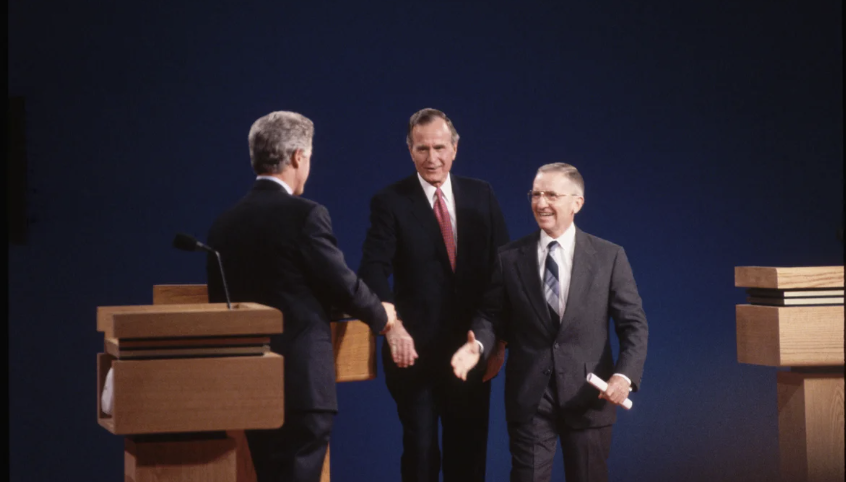
HP: Absolutely. My political involvement started because of my parents, and for them it was talking about politics at the dinner table and leaving the newspaper on the kitchen table every single morning. Every morning I’d flip through the paper after my dad had left it, and every evening as we sat down I’d have my list of questions, but I’d also sit back and listen to them have a conversation. I remember the 1992 presidential election being the one that really lit this up in me. They let me stay up way too late to watch debates, which were far more congenial back then, and never once said, “This isn’t for kids,” but instead invited curiosity. Making sure my exposure to it remained age appropriate, and that remained consistent, but what I was exposed to changed as I grew. And for me, it’s very important to model the same for my kids, albeit very differently, because fortunately I’m not reading a physical paper in the mornings. I’m checking all my newsletters on my phone first thing in the morning, and in the evenings dinner is still pretty chaotic with their activities and late work meetings, et cetera.
But it also is important to say, “I’m volunteering, you’re coming with me.” So we are going to be doing a lot of door-knocking and canvassing in Pennsylvania, with a couple different groups, Indian American Impact being one. They See Blue is another one. They have seen me speak a lot about We’re Speaking, and certainly Rho has been able to attend some events where I’m doing a talk or doing an interview about the book. He is my #1 little hype man telling his teachers that they need this book, too. And honestly, coming up with his own talking points about the vice president and asking me, “What do I say when someone says this?” And I realize now it’s about teaching kids to listen as much as giving them messaging points, because I think something we’ve really lost in this day and age is a sense of empathy and thinking about how certain bills and laws affect people. Thinking about reproductive healthcare rights, certainly thinking about voting rights, gun safety legislation, and a lot of LGBTQIA+ bills that are ostracizing and marginalizing a community that just want to be seen and respected and loved the way any of us are. So we have conversations about this to a point, to what is age appropriate for him. But also I don’t want to sugarcoat how awful things have been, and how, in my view, I’ve seen a decline in true equality and equity and I see the hoarding of power by one party over actually utilizing the power to better people’s lives. And that is a point I tell Rho a lot. You have to think when people have power, what do they do with it? We vote for the people who use that power to help as many as possible versus those who use that power to benefit themselves and a very few people who look like them, sound like them, and have the same voice. That’s what I do with Rho.
With Rhaki, who’s five, it’s a lot more picture books, mostly focused on civic engagement, but of course he has Kamala Harris’s Superheroes Are Everywhere, as well as Rhaki’s new children’s book called Kamala Harris Raises Her Hand, which is also published by Little Brown Spark. And we read a lot about what it means to vote, what it means to be a feminist. My First Book of Feminism (For Boys) is one of his favorites. I’m not just saying that. He made me read it to him last night, and I was like, “More men need to read this.”
AA: I love it!
I think something we’ve really lost in this day and age is a sense of empathy and thinking about how certain bills and laws affect people.
HP: It breaks it down so simply. And I also think it helps that at the end of the day, they also see their grandfathers and their father being very hands-on at home. None of these old gender stereotypes, they don’t exist in our home. They see both of us work and have big careers, they see both of us contribute and take care of the home, and they also know that they’re expected to contribute in taking care of our home as well. It always starts in the household, and politics is as local and your family is as local as it gets. So it’s a bridge of managing a balance that we have the kind of home that I’m really proud of, to know that that’s their foundation, and it’s important to me to give them exposure and to have these conversations at a very young age about what politics is, about what power is, about what they can do, and what they are going to be at the mercy of based on who’s in power, where they live, and their own experience as South Asian-American boys in the United States.
AA: That’s super inspiring. If I may suggest a parenting book as your next contribution, I mean, seriously, if you picture what you just described writ large in the country, it would be world-changing. And I did think a couple of times about how historically it’s been hard to engage the youth in voting, right? They kind of sat out of elections, and I’ve wondered why that is. We have a family that’s very similar to the one you described, lots and lots of conversations from the time my children were little. And I just think that would probably change the game, if adults engaged their kids and kind of trained them along the way at appropriate milestones, like you talked about, but in civic engagement and teaching them how to think, how to question, how to empathize. So, I love you sharing that. I think it’s actually really, really important.
HP: Thank you.
AA: All right, let’s dive into your book. I’m first curious to know when you first got the idea to write a book specifically about Kamala Harris. How did that all happen?
HP: When I got approached to write We’re Speaking, it was a couple different factors. It was the success of #5SmartReads and how I had talked about power and politics and news in a very accessible format for most people. I knew what it was to write a book and market a book, so the publisher had confidence that I could be the one to deliver on this book. And I’d been a very early and vocal supporter of then Senator Harris during her presidential run. So when I got approached to write this book, I was like, “This is a dream come true for me. When do you need it by?” And they said, “Um, how’s February?” And I was like, “Two months February?” This was at the end of November.
AA: No way.
HP: And at the time I had just entered diligence, I was negotiating a term sheet for a licensing deal for Roshan Pharma as well. So I wrote my first draft while basically being in pharma diligence. And I have to say, if my husband hadn’t taken a sabbatical, I was completely managing the house, the kids, and a lot of Zoom school because this was still the end of 2020, beginning of 2021, there’s no way I could have done this. I signed the contract for a licensing deal a week before the book got published, which is not normal. But yeah, from start to finish, from that first email to publishing date was 11 months.
AA: That’s amazing. Wow.
HP: I’m still recovering.
AA: I was going to ask you, did you sleep for a month straight after that? Oh my goodness.
HP: No, I’m still trying to catch up on sleep. Because of the pandemic, I had a very abbreviated, multi-phased sort of book tour. I did this huge project with Taco Bell convening and moderating a series of summits they had with franchisees, with Gen-Z activists. And then I was speaking at a lot of different conferences. So I think that summer of 2022 I did kind of crash.
AA: Wow, that’s incredible. Good for you, I mean, that makes me respect the book even more. I enjoyed the book so much, I have to say. And you do have such a relatable, accessible style. It’s very conversational, which I really appreciate and enjoy and I think most readers do, to be honest. I’d love for you to introduce us to Kamala kind of as a person. Can we start with a short version of her biography?
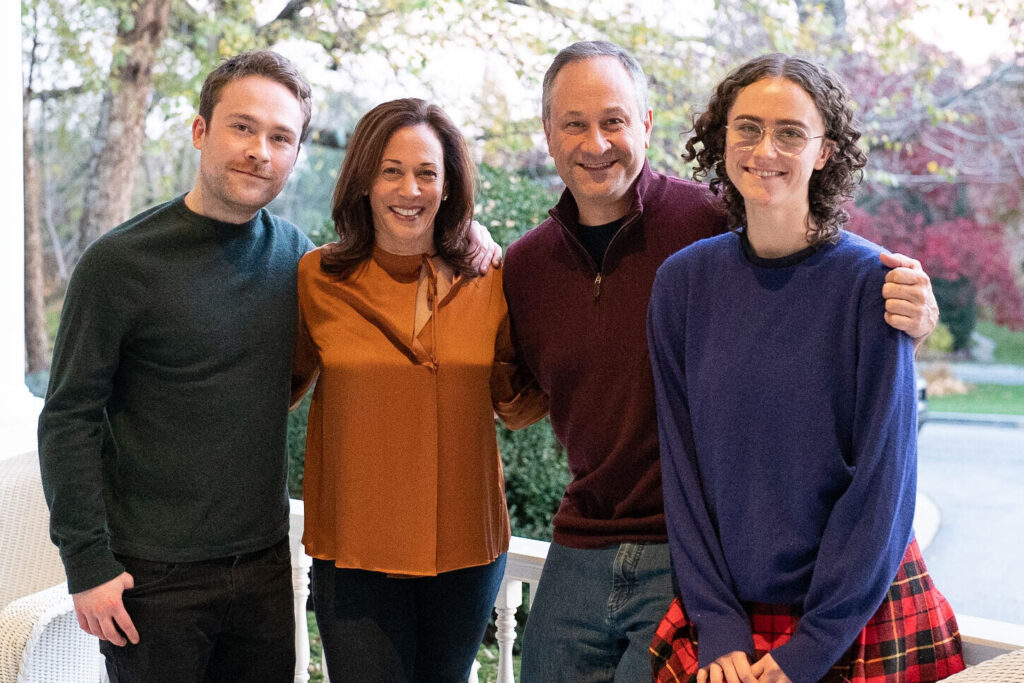
HP: Yes. I mean, the reason why I say we are our multitudes is because women, and especially women of color, tend to have parts of their identity stripped and shrunk to put into a box to make people feel comfortable versus challenging ourselves to expand our worldview and see people for all of who they are. She is a formidable leader fighting for the most vulnerable, and has done so over the course of her entire career. She is fiercely devoted to her family as a daughter, sister, wife, Momala and auntie. I actually lost count of how many godchildren she has when I was researching the book. I lost count at about 11, which I find to be immensely impressive. She is someone who really lives life to the fullest. Yes, she laughs. Yes, she loves cooking and music, she loves to be with her family. She’s fiercely there for her friends. She is, in many ways, just like all of us. And in many ways, the most powerful person and someone who could use that power to change lives for the better for so many, regardless of if they vote for her or don’t vote for her.
I think the thing I admire most about her is her ability to take hit after hit after hit and to get back up and continually prove people wrong. I studied this pattern of hers, of her being able to build back, not to quote Joe Biden, but to build back better every race she’s ever run and every role she has ever aspired to and worked towards, and she’s someone who really puts her head down and does the work. She does not like talking about herself, which I do find refreshing, but I also see that in a presidential election and during the campaigning, it could also be immensely frustrating for those who have followed her for a very long time and want to get more from her.
AA: Yeah, that makes sense. For people who don’t know even just the basic fact sheet about her, maybe tell us where she’s from, where she was born, who her parents are, and her education. Walk us through a timeline of her life.
HP: She was born in Oakland, California to two immigrants, an Indian-born mother named Shyamala Gopalan Harris, and her father was Jamaican-born and immigrated to the States, and they both met at a Black Students Association meeting at Berkeley. What I find really interesting, and it’s a part of the story that I saw a lot of parallels with my own family, is that this was a time in the States where the visas granted to Indians who wished to come to the United States was capped at about a hundred a year. There were not many Indian Americans at all in this country. So Shyamala was not really going to find an Indian community when she got here, so she found her community and was welcomed and embraced by the Black activists, the civil rights activist group at Berkeley that she became a fiercely protective and invested member of. And there are many people, her peers at that time who said “she was the only one we’d let in.” And this was also a community that helped her raise her daughters, that helped provide her a home and childcare and friendship. And what a wonderful, uniquely American and still so specific story, and I think that really does inform who Kamala Harris is.
She doesn’t get bogged down in, “Is she Indian? Is she Black? Is she this?” She knows exactly who she is, and she knows she is all of these things. So when I think about who Kamala Harris is, that part of her parents’ story is very, very important. She’s also not just from Oakland, but she’s someone who grew up all over this country as her parents pursued different roles in different academic institutions. She’s lived in Canada, she’s lived in Wisconsin, she’s lived in Illinois. She’s also uniquely American in that she didn’t grow up in a singular place. And that was her life. She went to Howard for undergrad, and I think that’s been very well reported about how it really shaped her and shaped her advocacy. She worked on the Hill for a California senator at the time as well, went to Hastings for law school, and immediately started working as a prosecutor after working as an assistant district attorney in Alameda County and San Francisco County. She got elected her first role as district attorney of San Francisco, and this was a hard fought race. The guy she was running against, the incumbent, his corruption charges were well documented, but he had been there for so long that it was unfathomable that he could ever get knocked out. And it did go to a runoff and she did end up winning. But a story I really love about this is that her mom would drop her off at a grocery store or at a BART stop, she would take out an ironing board, tape her posters around it, and that’s how she showed up to campaign on the streets and canvas to introduce herself to the community and have them get to know her.
Similarly, in her attorney general race, she ran against the district attorney of Los Angeles and a very moderate Republican who was projected to kick her butt. It was a tight race that went to multiple recounts and the election was called for her. And quickly after being sworn in, she jumped right into the negotiations between all the states’ attorneys general with the big banks to negotiate a settlement from the 2008 stock market crash and mortgage foreclosure catastrophe. She’s someone who will take the hits in the election, but once she wins she immediately rolls up her sleeves to get to work. Her senatorial race was a lot smoother where she had a smoother path to victory, I think after a pretty chaotic, but not nearly as much a primary in the Senate. And then obviously when she ran for president, the first time she dropped out before the first caucus in Iowa. And I respect that when she dropped out, she had enough cash on hand to pay out the team that she had through the end of the year versus pushing through and leaving people with nothing. I think that is a really admirable quality to have, to know when to call it to make sure you take care of as many people as possible. And then she was tapped by Joe Biden to be his vice president, and here we are today.
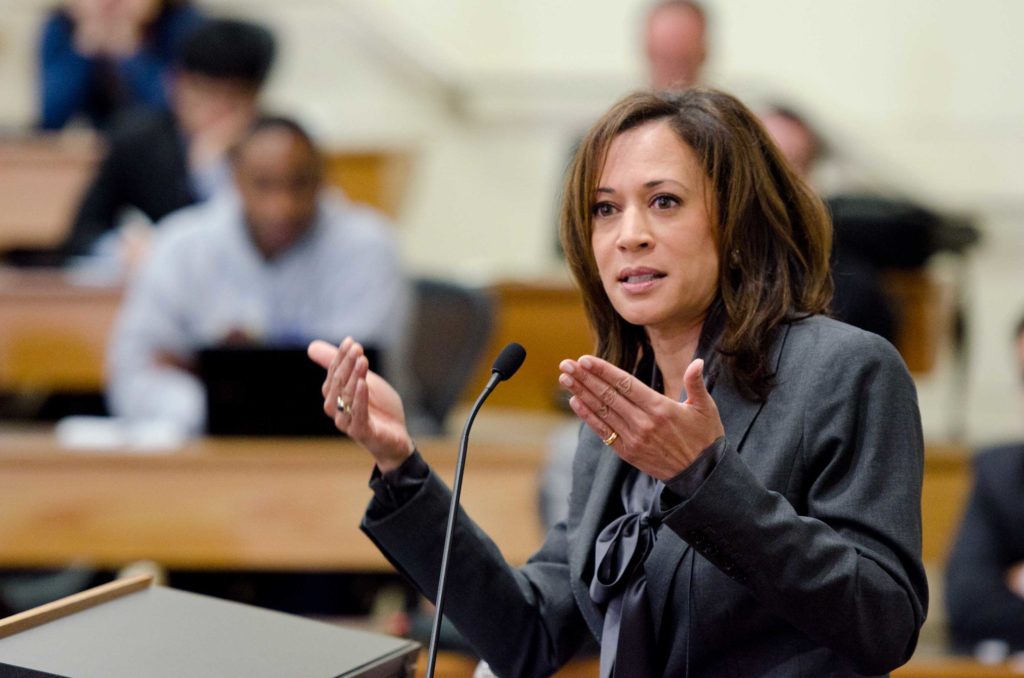
AA: Wow. Yeah, that’s awesome. It just strikes me, I try not to waste too much time in comment sections of social media, but sometimes I see people’s comments, especially white men’s comments about Kamala Harris, one thing I see often is like, “She has no experience.” And we can talk– I know, your eyes roll so hard at that. I mean, even if you disagree with her politically, you can’t argue with an entire lifetime of deep experience. And like you said, just the most incredible resilience to just pop back, pop back, pop back, learn and keep going, learn and keep going. I mean, she’s just been at this for decades.
HP: And she’ll be, if she’s elected, the only president to have served in all three branches of government before she was elected to the presidency. William Howard Taft’s the only other one, and he was appointed to the Supreme Court after he was president.
AA: Wow.
HP: So she has the most experience across the board in terms of the public sector that any other candidate or leader we have ever had in this country.
AA: Incredible. That’s so important. And I’m so glad that you’re speaking about that. I also have to say too, going back to your book and the process and the timing of you writing it, the fact that that’s already available for people as soon as she accepted the nomination, I was like, “Yes! Hitha’s book is already there!” People can just go to Amazon or whatever, hopefully a local, family-owned bookstore to buy the book. But you can buy that book so easily, you’d already written it, there it was. And people can learn about who this human being is, who we’re considering making really the most powerful person on the planet, in many ways. Anyway, back to her story. You’ve talked about some of the life lessons, her resilience and her hard work ethic, but I want to kind of double click on some of the, not soundbites, but representative quotes that you’ve learned from her life. She wrote a memoir titled The Truths We Hold, and she often says this, I think, she says, “We must speak truth.” And she says, “I choose to speak truth even when it’s uncomfortable, even when it leaves people feeling uneasy.” So do you want to talk about that a little bit? And we don’t have to contrast that with the other person who’s running for president right now, but just speak about that and the importance of speaking the truth, even when it makes people uncomfortable.
HP: I mean, you’re talking about someone who made Jamie Dimon feel uncomfortable when she was a weeks-old attorney general, who took him to task because of the absolute irresponsibility of the largest financial institution to allow for this massive mortgage foreclosure crisis to happen. For her to have seen the way that humanity and dignity had been stripped from tens of millions of California’s homeowners, she brought that energy to a very, very heated conversation that I read about in the book with Jamie Dimon that left him using some choice words to describe her and her basically taking her earrings off, ready to battle. To me, that is such a specific Kamala-ism moment that I think she’s had her entire life, her entire career, but that is a really remarkable one. Because I don’t know how many of us would have had the ovaries to show up to one of the most powerful people in the world and say, “You were wrong. You messed up. You need to pay. You need to fix it. I’m going to help you, but you need to fix this.”
The one I think is most timely right now is her vocal leadership in terms of abortion rights and healthcare. She’s the first Democratic president or vice president to even visit an abortion clinic. In the way Joe Biden would defer to saying “reproductive healthcare”, “reproductive rights”, she says “abortion”. She says it frequently. She says it repeatedly. And I think her recent episode on Call Her Daddy is a very specific way of saying, “Not only am I having this conversation, I’m going to have this conversation where people are most affected by what the Supreme Court did with Dobbs and what state legislatures are doing all over this country with these abortion bans. Abortion is healthcare.” And she’s the first to also not caveat it, not say “in the case of rape, in case of incest,” it’s, “you don’t want to have this child. This is the healthcare you need and you deserve. No questions asked.”
And I think where the Republicans are still focused on painting anyone who believes in abortion rights as immoral or unjust or baby-killers or whatnot, they use terms like “late-term abortion”, which is not a medical term. If you are having an abortion in your second or third trimester, that is a deeply wanted child where that child’s life is not viable and your own health is at risk. Similarly, we don’t talk enough about in vitro and fertility support. Reproductive healthcare is treated as such an afterthought, when access to it affects the economy, it affects public welfare, it affects everything. And to have a candidate speak forcefully and passionately and regularly about this issue, to make it front and center, about the major issue that it is, and with that the care economy, with that voting rights, with that price gouging from major corporations whose profitability has only increased in these past few months at the cost of higher costs to their consumers, it’s all connected. I don’t think we let people, let our leaders talk about these things intersectionally the way they need to be. And we default to soundbites, narrow, narrow snippets of the truth molded for a very specific purpose.
This is the healthcare you need and you deserve. No questions asked.
And to your note about the comment section, I made the mistake, or I made the choice to go to Alex Cooper’s reel where she talked about the preparation of interviewing the vice president, and in it were some incredibly supportive words from people who clearly listened to the episode because it was very much focused on abortion. That was the purpose of this call, is to talk about reproductive rights and to talk about abortion access and what happens when women can’t get abortions. But in the comments it’s like, “You didn’t ask her about the border” and “you didn’t ask her about this” and “you didn’t ask her about that.” And then the same talking points that are regurgitated on Fox News over and over and over again that are false.
And it’s just the misinformation that has circulated so much that people become accepted as the unequivocal truth, it really does make me sad that not only are we not able to hold multiple things to be true at the same time, it’s that the misinformation machines that are spoon-feeding these messages to us repeatedly are preventing us from thinking critically. We’re losing the ability to think for ourselves, to understand nuance, to do the research, to understand an issue and verify what is fact and what is false. And it’s things like these that make me extremely concerned about the future of our country and certainly about this election. But it focuses me to be like Kamala, roll up my sleeves, evoke her mother’s wisdom, do something about it and don’t do it half-assed, and go where I can be a value and I can make an impact, which for me is canvassing and working within the South Asian community to get them to show up to vote and to help inform them based on a common comfort and that we have a similar experience. We come from the same place and there is a trust there that I’m not going to necessarily have with strangers on the internet.
AA: One thing that I noticed was a theme in your book was you talking about her hustle, and you’ve already spoken to that today, just how much that woman gets done. But also her humility, and I’m wondering if you can think of an anecdote, maybe an experience where she’s made a mistake and she chose to show humility rather than defensiveness and arrogance. Because that, I think, is a really, really important character trait that we just do not see enough in politics, or actually in the world in general.
HP: There’s a really important issue where I think she has shown immense growth and humility, and that is criminal justice reform. As district attorney and attorney general, you are the top cop, in a sense, of either your city or county or the state. And with that comes being, for the people, not necessarily on the other side. And that’s the role she served since she graduated from law school. Now, what happens when you’re defending the laws on the books is that there isn’t as much you could do when those laws are unjust. An attorney general doesn’t have a ton of latitude, and neither does a district attorney. As a result, some of the laws that were on the California books, as well as how she enforced some of those laws… I think about a time where she defended the law on the books for the state of California stating that she didn’t grant an exception for a Sikh prison guard who wanted to maintain his turban and his beard, and that he had to shave his beard very close-cropped, which wasn’t in line with his faith. That was a ruling that I think was a mistake. Looking back on it, I can say that. She’s also made a statement and said, “I should not have ruled in that way.” But when she went from attorney general to Senator, she went on a very private but detailed conversational tour to learn from local activists, DeRay Mckesson being one of them, on what she didn’t know. In being DA, in being attorney general and having one very clear perspective that she’s had her whole life in defending the people, who was hurt as a consequence from that work? And she never publicized it. It was actually quite a hard thing to research and to find anecdotes and to connect the dots, but the bill she proposed in the Senate with Republican co-sponsors on field reform and criminal justice reform shows great evolution from who she was as a district attorney and attorney general to who she was as a senator, now vice president, and hopefully as president of the United States. I think we have to give people the space and we need to celebrate evolutions on an issue versus holding them to an unreasonable standard that in general doesn’t exist. But also, as humans we change, we evolve, we grow. Why should we have such fixed policy positions? I think it’s a mark of a strong leader to show how you’ve grown in an issue and how you’ve grown over your career versus ascribing to a purity standard that doesn’t serve anybody.
AA: Yeah, I totally agree with that. Okay, that leads me to a question for maybe some listeners who are still deciding or maybe skeptical of Harris. What are some criticisms of Harris and how would you respond to those criticisms?
HP: One of the criticisms that I see and I hear about the most is about the southern border and the spike in undocumented immigrants crossing the southern border. And people saying, “She’s done nothing, crossings are up, more drugs are coming into the country,” et cetera, et cetera. I’d like to caveat this with a couple facts to rectify this. First and foremost, there was a bipartisan border security bill that she and President Biden had worked on with Republican lawmakers as well. It was not a perfect bill, but it would have been the first congressional action taken in decades. Donald Trump told Republicans to torpedo that bill, which they did. So if you’re concerned about the Southern border and nothing being done, the blame doesn’t always belong on the Biden-Harris administration. A lot of that blame belongs on Donald Trump for torpedoing what would have been decisive, important action that would have reduced, by his staffing up on the border, the undocumented crossings as well as accelerated asylum proceedings and helped those who were stuck in the system to have legal access and entry into this country.
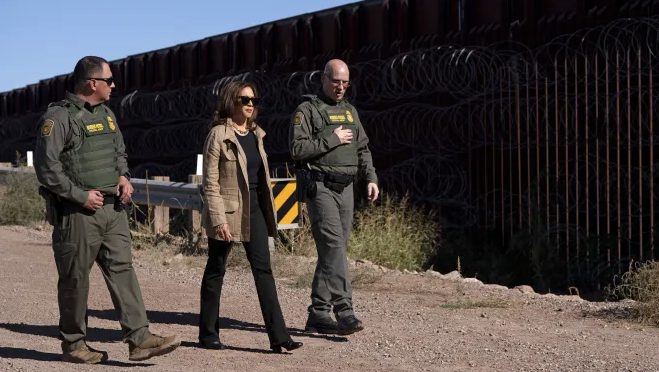
She was focused. The job she was actually tasked with was to address the root cause of undocumented immigration coming through the southern border. And the fact is that there were three countries that are incredibly unsafe to live in because their economy had fallen to tatters, crime was significantly up, they were not safe, they were not healthy places for people to live and build a life. So what she worked on was having a record number of private sector funding, I believe the number is up to $4 billion, invested in those countries to create jobs, to rebuild security and infrastructure, and to create a better, safer place for those people to live. And to allow for asylum applications in the country so that they wouldn’t have to travel through Mexico and enter the border in a undocumented fashion or illegally. So if you care about the southern border and want to see decisive action being done on immigration, elect the person who had a bill ready to go and had the votes lined up until the 45th president decided it would be bad for his election chances.
The second issue I want to talk about is a criticism I hear a lot about, and we’ve heard it on the debate stage, both in the vice presidential debate and the presidential debate, which is, “If she’s vice president, why hasn’t she done it yet?” And I’d like to propose or remind people of a civics lesson about Congress being the one to pass bills, not a president or a vice president. And in order to pass bills by passing this little term called the filibuster, which requires 60 votes to close debate and to move forward to a vote, the actual vote to pass a bill is 51. The votes required to end debate is 60. In the past, we have seen the filibuster be carved away and exemptions done for Supreme Court confirmations, for federal judicial confirmations, and now for spending bills. None of those require the 60 votes to close debate, they require 51. In order to get some of these big bills that really don’t have bipartisan support – we saw it with the Inflation Reduction Act for one, and we’ve seen the House pass a lot of bills that were DOA at the Senate. Codifying abortion rights, voting rights, a care economy bill, the Build Back Better plan, that were done at arrival in the Senate even though we had a majority, because two senators, Joe Manchin and Kyrsten Sinema, refused to agree to a filibuster exception for passage of these critically important bills.
She has stated that she believes that voting rights and abortion access are two significant issues worthy of a filibuster exception. Most of the Democratic senators, as Joe Manchin and Kristen cinema are no longer sitting for election, are in support of the same. So if we’re able to win the House, and it’s going to be close, but win the Senate with candidates and Democratic senators who have agreed to this, we will be able to get these critical things done, from care economy, investing in paid leave, voting rights, abortion rights, Supreme court reform, et cetera. There is a lot we can do, but it’s not just on one person. It is not all the office of the presidency. It’s these three branches of government working together synchronistically. I think that’s an important thing to remember.
I also think that on the flip side, what’s at stake if Donald Trump were to win and the Republicans were to bend back the House and the Senate… Listen, Project 2025 is already in place. It has shown that it has the momentum from various states’ legislatures, or states where there is a Republican trifecta of clean water, clean air, safety regulations to create a safe environment are eliminated. People are living next to cryptocurrency mining operations that are polluting the air and poisoning their water. These are places where women can’t get the healthcare they need, whatever the circumstances are, but they can’t get the healthcare they need and they’re dying. Where people who are American citizens can’t vote because they’ve been purged, or it’s just too damn hard where they live. It is not accessible or easy to vote for the voters they want to disenfranchise to hold on to power.
And this isn’t just what happens in those states. What happens in state legislatures is a bellwether and a predictor for what’s going to happen in Congress based on what Congress looks like. So Project 2025 is not some far-fetched image. It has already taken effect in a lot of states in this country, albeit quietly, and it’s primed for federal primetime in action. So it’s not just what we could do if the Democrats win the big three, if we win back a lot more state legislatures, it’s if we don’t win, what will happen? Not what could happen. What will happen? Because we already see it. I think it’s not enough to focus on what we’re voting for or what we’re voting against, but to really put them side by side and compare them. Do we want kids to be safe? Do we want teachers and essential workers to be well compensated and afford to live? Do we want the right to make our healthcare choices? Do we want to be able to vote with ease and with regularity? Do we want clean water and clean air and access to healthcare, to food and to be able to hone a home and to have dignified work? Or do we want to be shoved into these tiny little boxes where that American dream feels further and further and further away? I know what I want and I know what I’m voting for.
AA: Yeah. I have to say, too, to the point that some people will say, I’ve heard this a lot actually, “What did she even do as vice president?” I’m always like, “What does anybody do as vice president?” That’s not a role that’s in the constitution where you’re able to do very much. I’ve never heard people speak that way about Joe Biden when he was vice president or Mike Pence or Dan Quayle. It was just the double standard of it, and I think the gendered double standard of it. It was really striking to me when people still talk about that. Like, “What did she do as vice president?”
if you care about the southern border and want to see decisive action being done on immigration, elect the person who had a bill ready to go and had the votes lined up
HP: I mean, it’s a quadruple standard. And by the way, she was a tiebreaker on a number of consequential votes, one of them being the Inflation Reduction Act, which capped insulin at $35 a month and allowed Medicare to directly negotiate on the price of ten essential at-scale medicines that are priced exorbitantly and out of reach because they can be.
AA: Wow.
HP: If you want your grandparents and your parents to be able to have access to affordable medications to keep them alive, if you want an opportunity to have a skilled job without a college degree, if you want there to be protections on your essential goods so that you can afford to live, you have Kamala Harris to thank. And if you want your taxes to go lower and pay your fair share but also to make sure the wealthiest of the country pay their fair share, you will vote for Kamala Harris. If you care about the national debt, you will vote for Kamala Harris, because Trump is only showing that all he’s going to do is add more and more and more to it.
AA: Yep. I was just reading about that this morning, actually. I’m so glad you brought all of those up. So, so important and they’re not highlighted in the news enough. I appreciate that. We only have time for one more question, but I wanted to highlight a quote that you talk about in the book where Harris says, “Don’t let anyone tell you who you are. You tell them who you are.” Can you talk about that a little bit as we wrap up?
HP: Yes. This is a quote from her mother, that her mother would tell her daughters. And I think Shyamala embodied this so phenomenally well, and it’s not accredited to her nearly enough. Because she was someone who, I see a lot of parallels between her and my father, where a lot of people made up their mind about them based on how they looked, based on how they spoke, and based on their preconceived notions of what a brown person with an accent was capable of in their mind. And it was Shyamala, and I’ve seen my father and I’ve seen so many of the people in my life flip that and say, “That’s not who I am. I’m going to tell you who I am.” And it is a privilege to grow up in this country where at least my accent is the traditional American accent, and that’s one less judgment I have to deal with. But it also means that with the voice, that traditional, classic American voice that I have, I speak up louder and I speak up more forcibly about “I refuse and I reject this narrative that I have to shrink myself to anyone’s comfort.” I will introduce myself with all of my hyphens. I will take up space and I will take up time. I will use the word “and, and, and, and.” And if that blows someone’s mind a little bit more, I will patiently repeat myself and educate them until not only do they see me for all that I am, they start to see themselves in the same way as well.
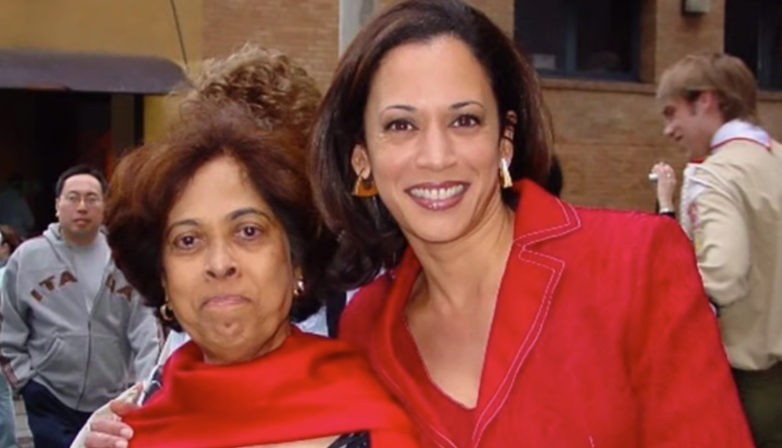
And that is exactly who Kamala Harris has been. She has never fallen down the trap of, “Am I Black or am I Indian?” She goes, “I know who I am. He doesn’t seem to know who I am, but I know who I am.” When her not having birthed children herself became a narrative by other people, it was in Call Her Daddy, in that podcast interview where she says, “I’m the mom of two beautiful children,” and said it just like that. No caveat, “I’m the stepmother,” or “this is my bonus.” She goes, “I am a mother to these two beautiful children.” And anyone who feels any other way has to be reminded that we don’t live in the 1950s anymore. Stereotypes are a powerful tool to keep people in their place. And the reason she has such vitriol thrown at her is because she breaks every single stereotype of how we viewed a leader in this country. To your point, all those 46 other presidents have been male, somewhat stale, and for the most part, pretty pale. So to have a younger, dynamic, brown woman who is loud and is alive and will do, for some of these people, enact their worst nightmares in making this country a better place for the majority of us, the ones who need it to be, well, that scares the shit out of them. And I, for one, think that they could use a little fear. They could also use a reframe of not just being burdened by what has been, but to see what could be and to realize what could be.
AA: Mm-hmm. And to realize that the world that you just described would actually be better for them too. If they can let go of that fear, it’s going to be better for everybody, in my view.
HP: Same.
AA: Well, Hitha, this has been a joy and honor. I’m so happy that your book exists. Like I said, I recommend that listeners go and buy it, read it. It’s short too, it’s super readable, it’s a compact book and I really, really enjoyed getting to know her more personally. It was just the tip of the iceberg during the conversation, you include so many great details about her daily habits and her jewelry and wardrobe and so many fun things that really bring her to life. So I really recommend your book, and again, I want to thank you for your time. I enjoyed it so much. Thank you, Hitha.
I know what I want
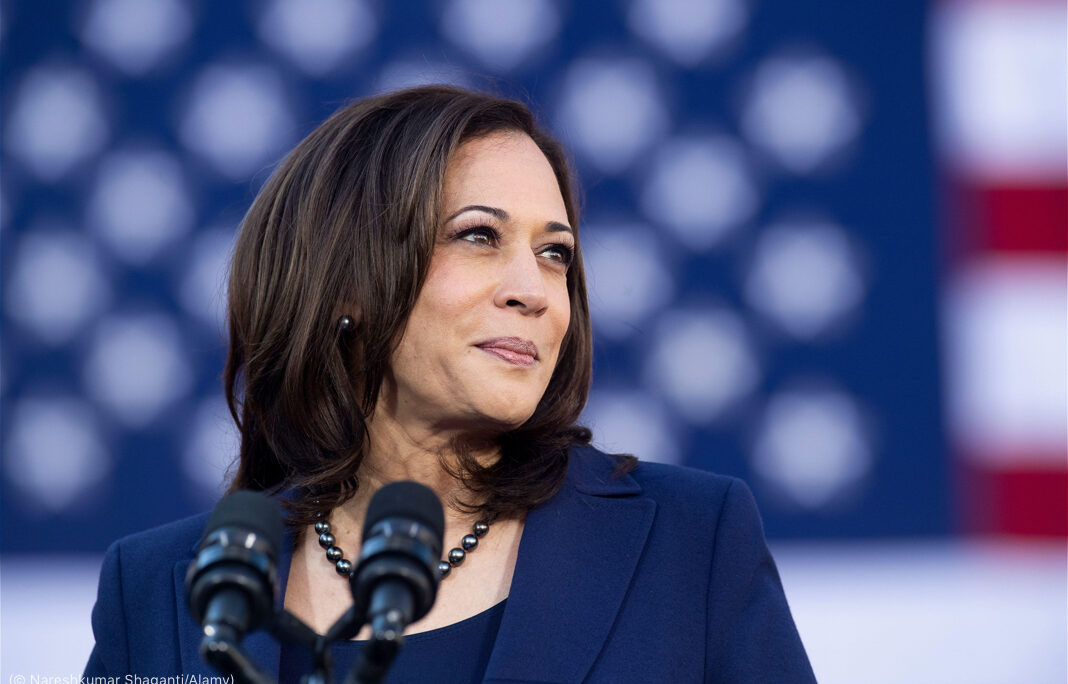
and I know what I’m voting for.
Listen to the Episode
&
Share your Comments with us below!

